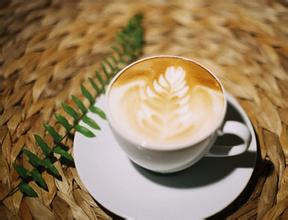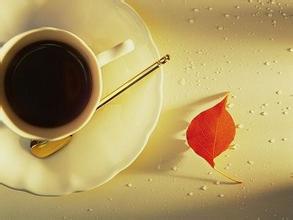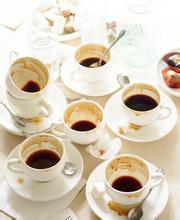Rough grinding suitable for brewing utensils: (), flannel drip filter coffee beans
Espresso and Turkish coffee use deep-roasted coffee for another reason, because deep-roasted coffee makes the beans softer and easier to grind, which is a bit superfluous. but some Italian-made bean grinders cannot crush lightly roasted hard beans. The bean grinder is originally designed for deep baking and is used to grind hard, lightly roasted coffee beans that will immediately malfunction Turkish coffee, a method of extraction known as "boiling", which uses deep-roasted powdered coffee powder. Why use deep-baked coffee powder? The sour taste of light-roasted and moderately roasted coffee powder will be enhanced after being boiled at high temperature, while using deep-baked coffee, even if extracted at high temperature, the coffee will be completely bitter.
1. Suitable for fineness grinding-Turkish copper pot (Ibrik, micro powder) mocha pot, espresso machine.
two。 Suitable for medium grinding-filter paper trickling filtration, flannel trickling filtration, air stopper.
3. Suitable for roughness grinding-water drop coffee machine (very rough grinding), trickling filter pot (very rough grinding)
Each extraction apparatus has its own appropriate degree of grinding, so grinding is not the degree of grinding you want. As I just said, when extracting coffee with filter paper trickling filtration, the coffee powder is too coarse or too fine, which means that the most suitable grinding degree is medium to medium roughness.
Is ultra-thick grinding better? This is also a matter of degree. If the grinding is too rough, the hot water will easily fall through the filter paper, and the delicious ingredients of the coffee will not be fully extracted. In this way, the coffee that falls into the coffee pot will become a mild liquid.
In the process of grinding and extraction, there is an unchanging basic rule, that is, "the finer the grinding degree, the heavier the bitterness, and the thicker the grinding degree, the weaker the bitterness." This is based on the fact that the surface area of coffee powder is covered by hot water. From this, we can know the relationship between the extraction apparatus and the grinding degree of coffee powder.
Espresso coffee, for example, grinds deeply roasted beans and uses an espresso machine to extract a small amount of coffee liquid in a short period of time, resulting in coffee with a strong bitter taste: what about the same coffee powder extracted by filter paper trickling filtration? The result of the actual operation is that the filter paper will be blocked by coffee powder, which makes it difficult for the injected hot water to pass through, the extraction time is prolonged, and finally evolves into the case of excessive extraction.

Important Notice :
前街咖啡 FrontStreet Coffee has moved to new addredd:
FrontStreet Coffee Address: 315,Donghua East Road,GuangZhou
Tel:020 38364473
- Prev

The characteristic method of the brewing head of coffee machine E61 introduction to the variety of price manor area treatment method
The characteristic method of coffee machine E61 brewing head, the price manor area treatment method introduces the environmental problems of coffee planting, although it can reach the hot area standard, it is far away from the equator, the problem of evaporation, and the large-scale coffee planting land in Yunnan is less than 1100m above sea level. in recent years, the severe drought in Yunnan, as well as the frost period in the producing areas, all make it impossible to guarantee the cultivation of coffee, which directly affects the production of coffee.
- Next

An introduction to the differences in the description of coffee bean flavor in Asia, Africa and America
Coffee bean flavor description of Asia, Africa and America Central and South America is the largest coffee producing area in the world, where there are numerous boutique coffees. Take Colombia, Guatemala or Brazil as an example, good coffee is enough to make people dazzling. What is the resource advantage that makes Central and South America so good? French naval officer Gabriel Mathieu in 1721
Related
- What brand of black coffee is the most authentic and delicious? what are the characteristics of the flavor of the authentic Rose Summer Black Coffee?
- Introduction to the principle and characteristics of the correct use of mocha pot A detailed course of mocha pot brewing coffee is described in five steps.
- Which is better, decaf or regular coffee? how is decaf made?
- How much is a bag of four cat coffee?
- How about four Cat Coffee or Nestle Coffee? why is it a cheap scam?
- Which is better, Yunnan four Cats Coffee or Nestle Coffee? How about cat coffee? is it a fake scam? why is it so cheap?
- How about Cat Coffee? what grade is a hoax? which instant coffee tastes better, four Cat Coffee, Nestle Coffee or G7 coffee?
- Process flow chart of coffee making-Starbucks coffee making process what coffee tastes good at Starbucks
- The top ten best coffee beans in the world Rose summer coffee or Tanzanian coffee tastes good
- Yunnan four cat coffee is good to drink?_four cat coffee is a big brand? four cat blue mountain coffee is fake?

